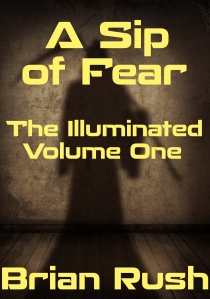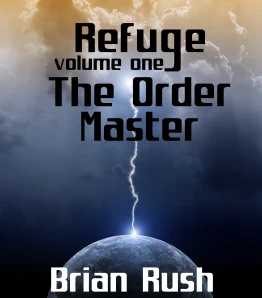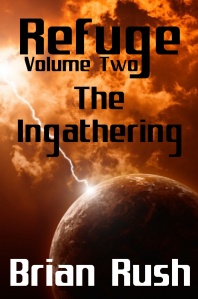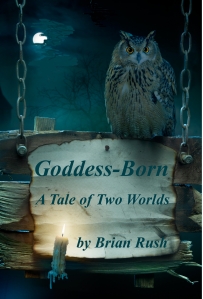 This post delves further into the interaction between polytheism and monotheism. The subject rose in my mind partly because of the discussion with the anonymous Muslim who commented on The Myths of Jesus below, and partly by a briefer discussion on the creation of religion in fantasy fiction, in which the other person preferred a polytheistic faith for her fantasy worlds.
This post delves further into the interaction between polytheism and monotheism. The subject rose in my mind partly because of the discussion with the anonymous Muslim who commented on The Myths of Jesus below, and partly by a briefer discussion on the creation of religion in fantasy fiction, in which the other person preferred a polytheistic faith for her fantasy worlds.
I’ve been both a monotheistic Christian and a polytheistic Neopagan in the past, and now call myself a spiritual person without a label, so perhaps I’m well positioned to discuss this subject. Whether that’s true or not, I’m going to.
Polytheism lends itself better to the creation of colorful and varied myths. A god or goddess who isn’t everything, but the divine embodiment of something, can be the subject of delightful stories. Even in the Bible, the earliest myths are apparently polytheistic; the Lord of the Book of Genesis is not the One God of later Judaism but one god among many, particularly involved with the nurturing of humanity in the Garden of Eden, but acting in concert with other gods when need arose. The stories about the Greek, Norse, Egyptian, and Vedic pantheons are wonderful tales. How else could the story be told of Time (Chronos) eating his children, and his youngest son stopping his cannibalistic ways? How better could the essential dichotomy of Cunning and Strength be presented than in the stories of Thor and Loki? (I especially love the tale of how Loki disguised Thor as a woman and fooled a giant into falling in love with him, in order to infiltrate the giant’s stronghold. One can sense the thunder god’s diminishing patience with the whole scheme, and see the trickster struggling to contain his laughter.) When there are many gods, one can indulge in a sense of play and story-crafting that is lost, somehow, when the gods combine into One.
Polytheism also generates deities that are more accessible, more easily visualized and connected to the human mind, than monotheism. This is probably its biggest virtue. A god among many, part of a pantheon, does not pretend to be universal, and so we cannot make the mistake of thinking that this conception of the divine which we can imagine and get our minds around is the All. That’s a fairly common mistake among monotheists, leading to religious intolerance and narrow-mindedness.
On the other hand, polytheism also tends to locality and is not so easily adapted to universality. A good example of this effect is the crisis that the Roman Empire went through in the Third-Fourth Centuries CE. Under the Republic, the Roman empire (we don’t capitalize it yet) was a true and classic empire: one very strong nation, the city-state of Rome, dominating many others, all the lands around the Mediterranean. The pagan religion of the ancient Romans sufficed just fine when the Romans were the only ones who mattered. But this governing structure became cumbersome and unmanageable, and Augustus added a layer of governance on top of it strictly for the provinces, leaving the Republic in charge of the city of Rome and its citizens. This new layer of governance, the Empire (now we capitalize it), was detached from Rome and the Romans from the beginning, and over the centuries became less and less Roman and more an entity in itself providing government for the Mediterranean world. But the religion of the Romans was of no appeal outside Italy. It was fine as a religion for the Romans, but not for the Empire. A number of disasters in the Third Century caused a breakdown of government. It was restored under Diocletian, but his successor, Constantine, saw a need for spiritual underpinning and support for his government, something more broad-reaching and universal, and of the two main contenders, Christianity and Mithraism, he chose Christianity, with enormous historical consequences.
A comparable crisis on a smaller scale struck the Israelites when they were forcibly removed from their country and resettled elsewhere in the Middle East by the Assyrians and Babylonians. We think of Judaism as a monotheistic faith and of course that’s the case today, but in ancient times it was not. The Torah does not claim that the God of the Jews is a sole god, only that he is the one the Jews are supposed to worship above all others. Implicit in this is that other gods exist, making ancient Judaism a polytheistic religion. The Israelites obviously saw no compelling reason to abide by the First Commandment, but often wandered in their allegiance, worshiping the local deities, the Baals and Astartes of the Phoenicians. Their god was a local god, a tribal god, the god of their people in particular but not of the cosmos as a whole, and as such he commanded only limited allegiance.
This ended during the captivity. Denied access to the land where, in their prior understanding, their god lived, they could not go on as his devotees in the same way they had conceived of him. The inhabitants of the Northern Kingdom, transported by the Assyrians, seem to have simply abandoned their Jewishness and assimilated to local customs. There is every reason to believe their descendants still live in modern-day Iraq and are today Muslims for the most part (which means they came to a form of monotheism just like their southern cousins, although it took longer).
The people of the Southern Kingdom, transported by the Babylonians, changed their conception of their god instead. He became a spirit, worshiped in spirit regardless of location, and he became a universal God, rather than a local or tribal god. At this point in time, their religion took on characteristics that we can properly associate with Judaism as it exists today.
This story of the transformation of JHVH from tribal god to universal God illustrates one of the two main ways that monotheistic or monistic ideas can arise from a polytheistic background. In this process, one of the gods is promoted to One God, and all others are either demoted to the servants or messengers of the One God, or else suppressed entirely.
The other path is illustrated by the emergence in Hinduism of the concept of Brahman. Brahman is not, properly speaking, a god; it is all-that-is, the Universal Soul, and the Oneness that is found at the root of the diversity of the universe. Hindus continue worshiping their many gods and goddesses, but believe that this diversity exists only at a superficial level of reality and at a deeper level the gods are all One. In this transformation — because there is good reason to believe that the ancient Vedic religion that preceded Hinduism was straightforwardly polytheistic, without the monistic concepts that exist in Hinduism today, so this represents a transformation — no one of the gods emerged to dominate all the others. Instead, a concept was advanced of a unity underlying apparent diversity.
My own understanding of deities is in their symbolic or metaphorical power, given a life of their own through the magic of the imagination, and so their nature reflects that of nature itself. The universe is both one and many — and so the same should be true of our conception of the divine. (To the extent we even make use of one, personifying the cosmos — that is not a requirement of spirituality.) There is a tendency in both monotheistic and polytheistic faiths to reach towards the other side of the spectrum. From the monotheistic end, we find Christians, theoretically monotheists, worshiping less lofty deities created from angels and saints, or conceiving of Jesus or of Mary as someone distinct from the lofty and inaccessible God, for all that Christian doctrine insists that Jesus is an aspect of the One God, not a separate deity, and that Mary and the saints are not divine. A good many Muslims, too, seem inclined to call upon the Virgin Mary as an intercessor with God, and one finds them and Christians praying to her together in certain parts of the Middle East, despite even stricter injunctions against polytheism in the Quran.
From the polytheistic end one finds a tendency to seek an understanding of the cosmos as one rather than (or in addition to) many, a search for a binding unity and universality rather than a splintering. In addition to the Indians, the ancient Greek philosophers thought along similar lines, and there are lines of monistic thought among today’s Neopagans, too, although they are not universally agreed upon.
It seems that the spiritual instinct is to recognize both the unity and the diversity of the cosmos. And to my thinking, that’s as it should be.







